夏候鳥的新故鄉-東南亞商業文化交流園區
The New Homeland Of Migratory Birds-Southeast Asia Business and Cultural Exchange Park
建築與空間設計類 評審團獎
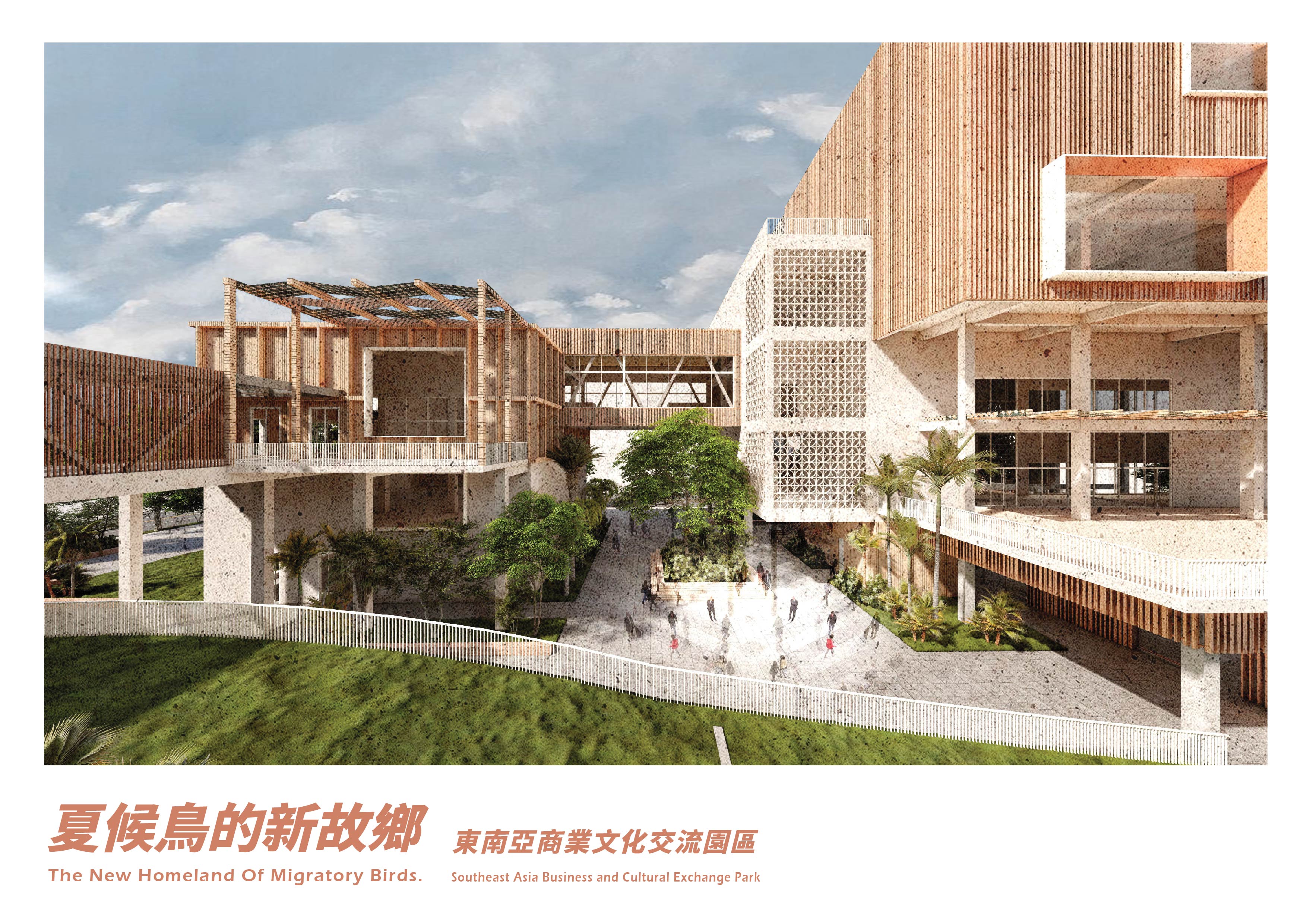
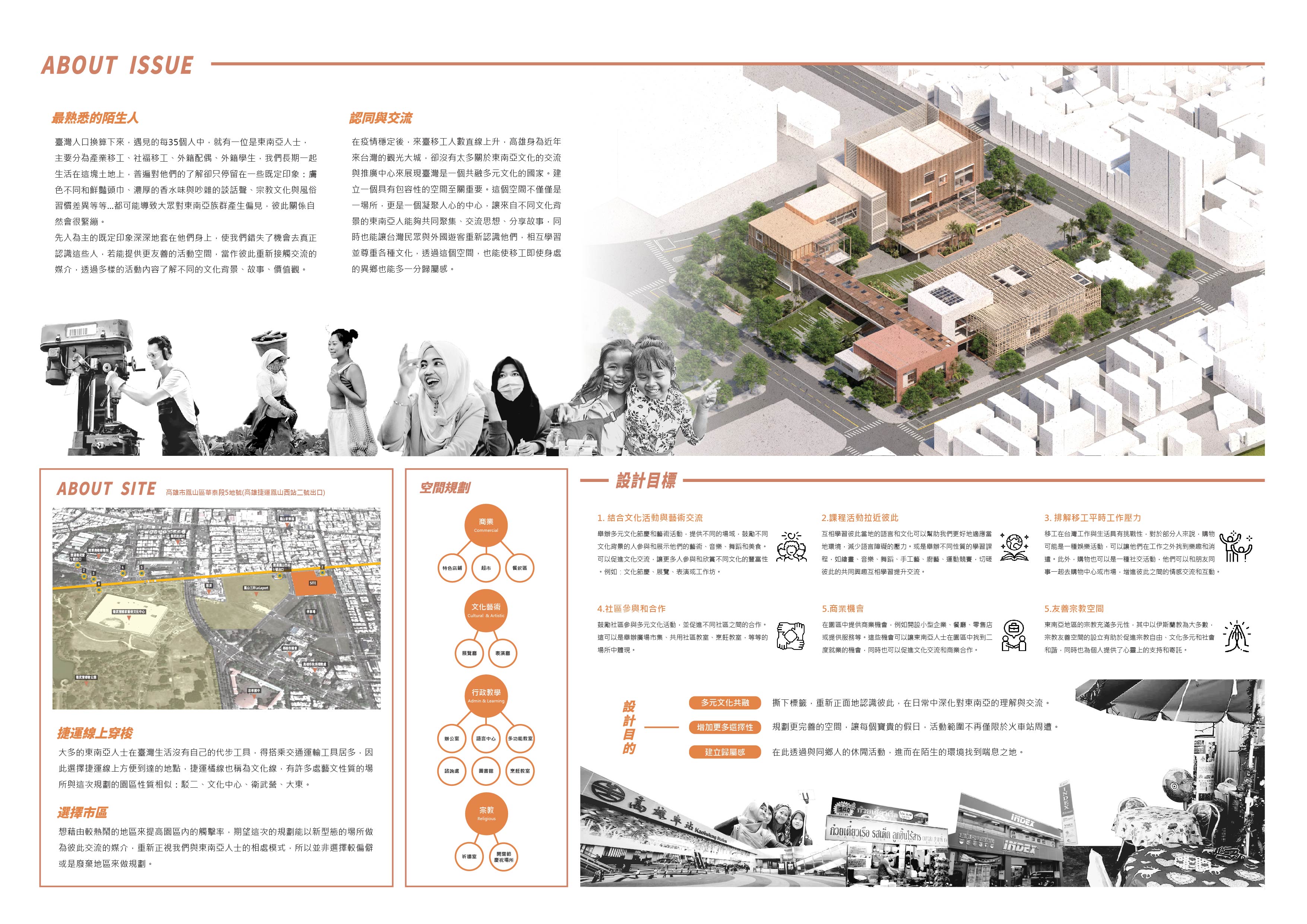
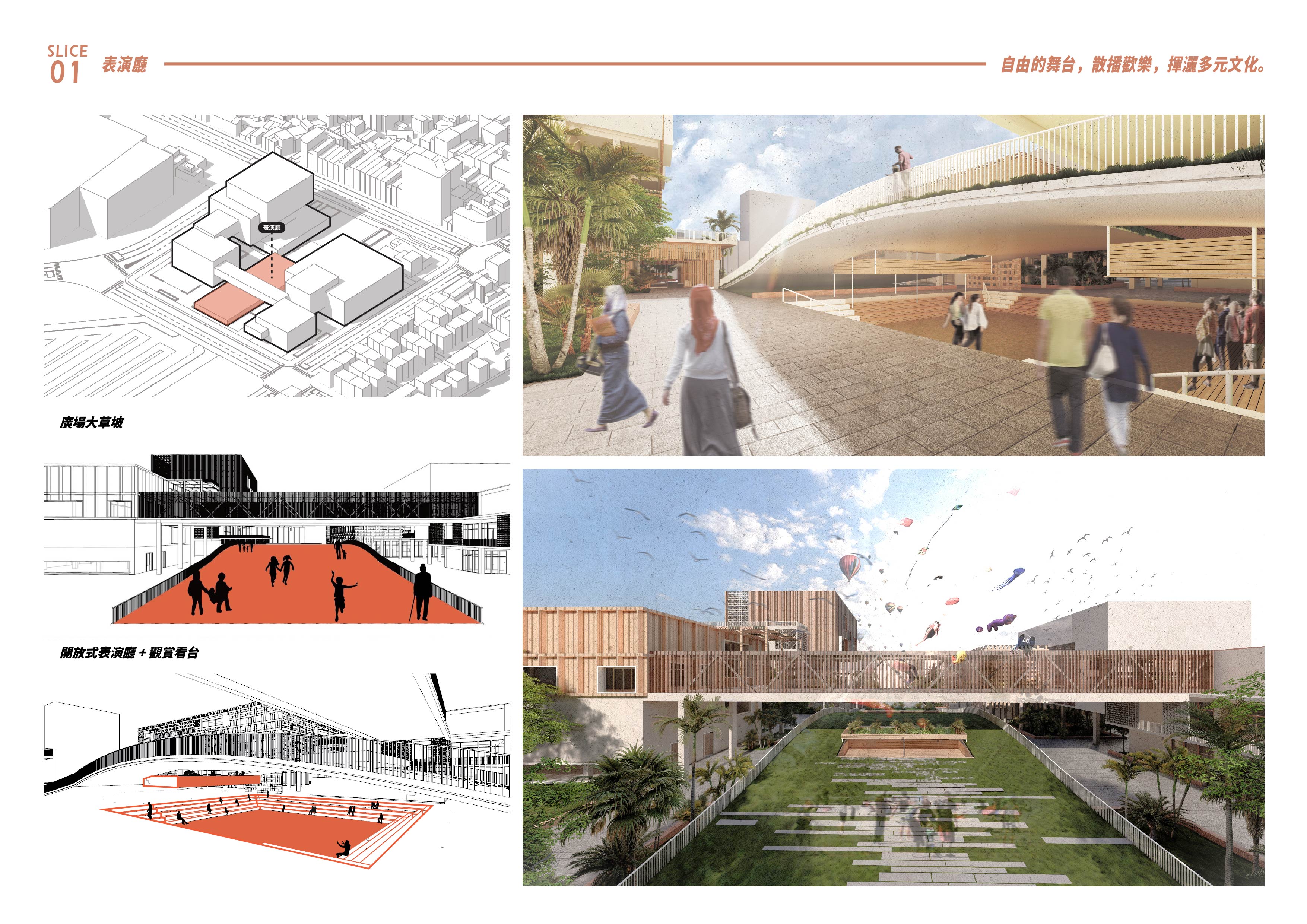
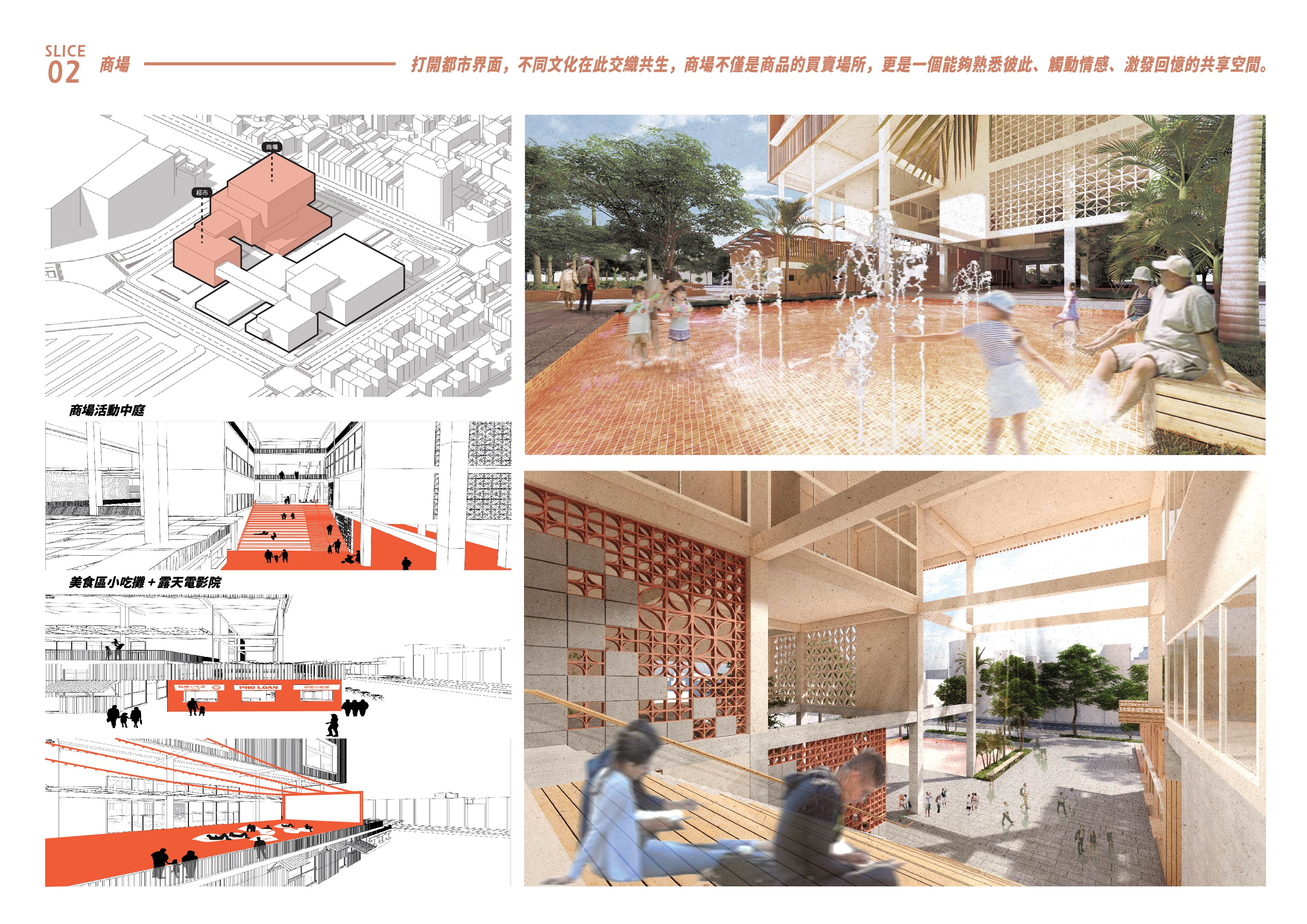
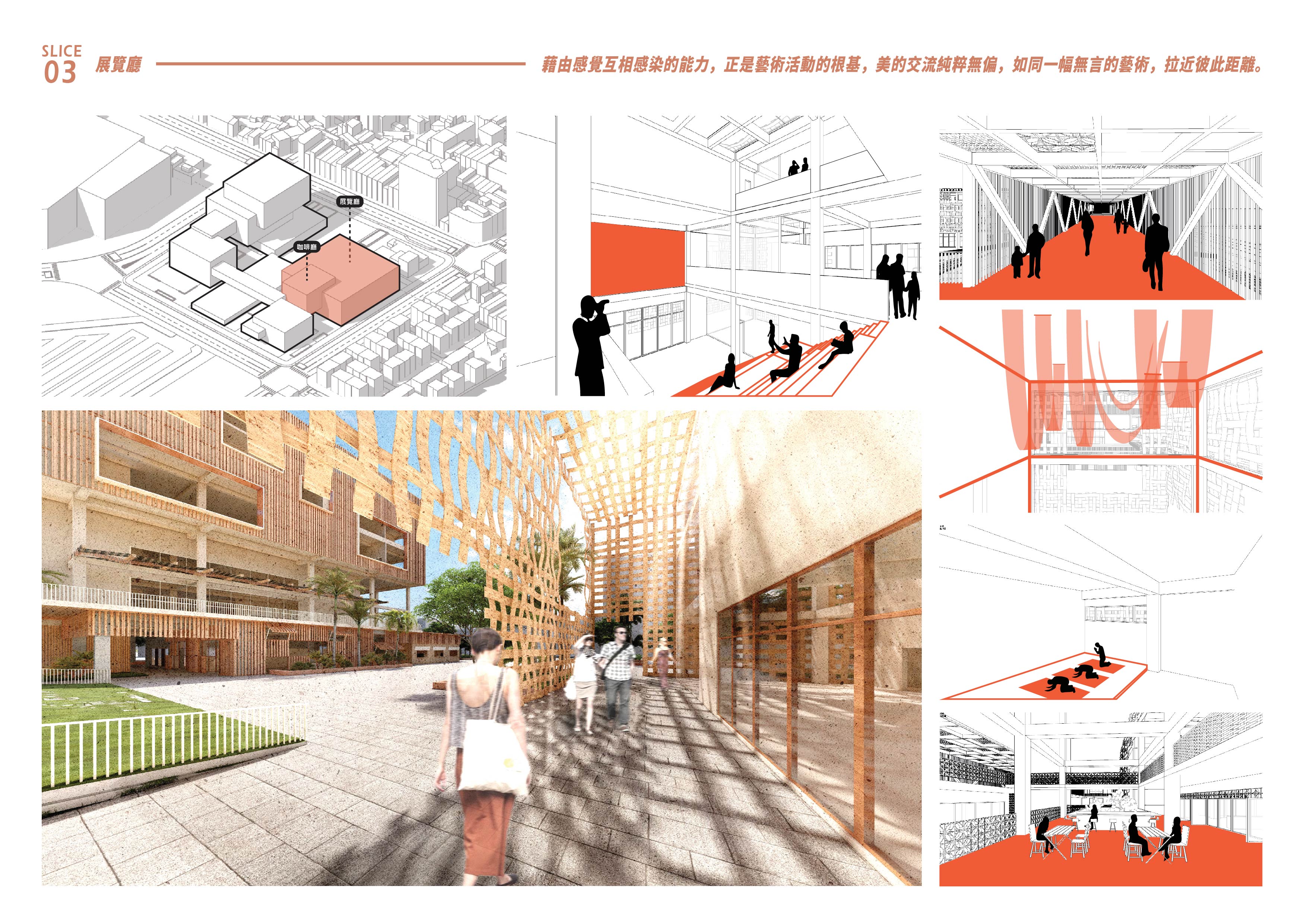
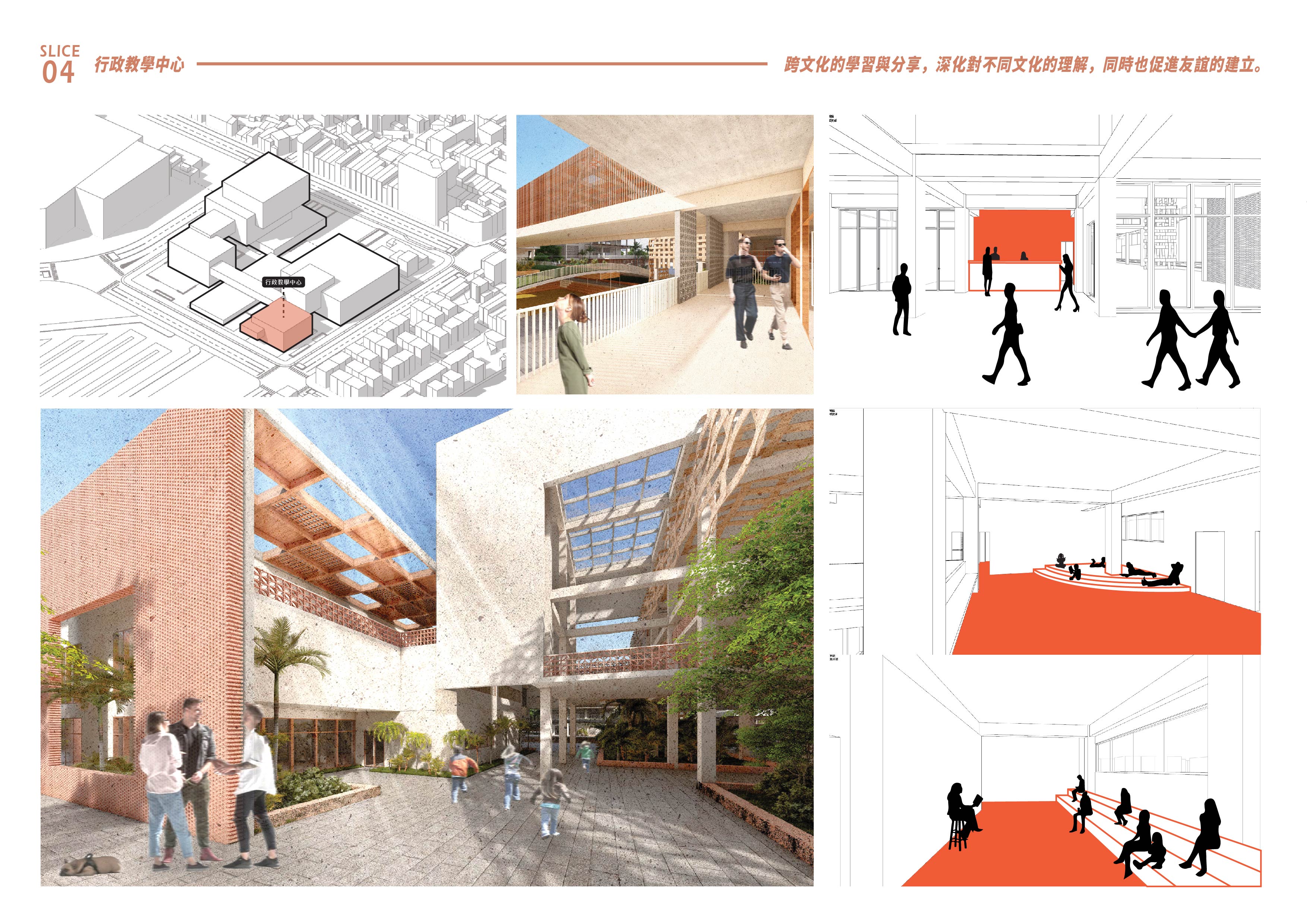
在台灣,每35位相遇的民眾中就有一位來自東南亞的人士,主要分為產業移工、社福移工、外籍配偶、外籍學生,我們長期一起生活在這塊土地上,普遍對他們的了解卻只停留在一些既定印象:膚色不同和鮮豔頭巾、濃厚的香水味與吵雜的談話聲、宗教文化與風俗習慣差異等等…都可能導致大眾對東南亞族群產生偏見。
先入為主的既定印象深深地套在他們身上,使我們錯失了機會去真正認識這些人,若能提供更友善的活動空間,當作彼此重新交流的媒介,透過多樣的活動內容了解不同的文化背景、故事、價值觀。
在疫情穩定後的幾年,來台移工人數直線上升,高雄升為近年來台灣的觀光大城,卻沒有太多關於東南亞文化的交流與推廣中心來展現台灣是一個多元文化的國家。
我們有著優良的文化底蘊也深信建立一個具有包容性的空間至關重要。這個空間不僅是一個場所,更是一個凝聚人心的中心,讓來自不同文化背景的東南亞人能夠共同聚集、交流思想、分享故事,同時也能讓台灣民眾與外國遊客重新認識他們,相互學習並尊重各種文化,透過這個空間,也能使移工即使身處在異鄉也能多一分歸屬感。
The New Homeland Of Migratory Birds-Southeast Asia Business and Cultural Exchange Park
In Taiwan, for every 35 individuals encountered, there is one from Southeast Asia, predominantly categorized as industrial migrant workers, social welfare migrant workers, foreign spouses, or foreign students. Despite our long-term cohabitation, our understanding of them often remains confined to superficial impressions: differing skin tones, vibrant headscarves, strong scents of perfume, and lively conversations, alongside differences in religious culture and customary practices. These ingrained impressions lead to biases against Southeast Asian communities, depriving us of genuine opportunities to know them.
By providing more hospitable spaces for activities serving as channels for renewed interaction, we can delve into diverse activities to comprehend their cultural backgrounds, narratives, and values.
In the years following the pandemic stabilization, the number of migrant workers in Taiwan has seen a sharp increase, with Kaohsiung emerging as a prominent tourist destination. However, there is a noticeable lack of platforms for Southeast Asian cultural exchange and promotion, hindering Taiwan's portrayal as a multicultural nation.
We firmly believe in the importance of establishing inclusive spaces. These spaces are not just physical locations but also cohesive centers, facilitating Southeast Asians from diverse cultural backgrounds to gather, exchange ideas, and share stories. Simultaneously, they allow Taiwanese citizens and foreign visitors to rediscover and appreciate them, fostering mutual learning and respect for diverse cultures. Through these spaces, migrant workers can find an enhanced sense of belonging, even in a foreign land.
正修科技大學 建築與室內設計系
(四年級)
吳昕曄
正修科技大學 建築與室內設計系
(四年級) 指導老師 陳耀如